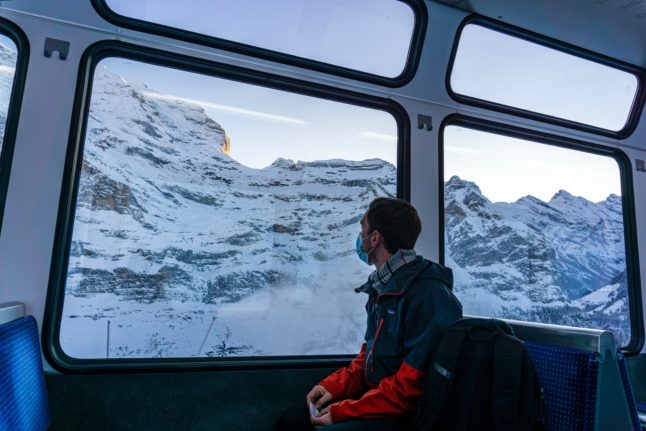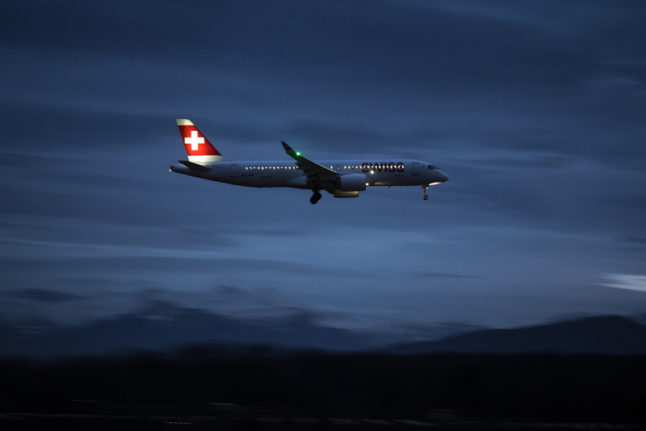Between November and February, Switzerland’s trains will introduce a few measures aimed at reducing its electricity consumption, SBB announced on Thursday.
Lower temperature
The temperature will be lowered by a maximum of 2°C in the passenger compartments, which should save between 5,000 and 8,000 MWh in the four-month period.
However, less heat “will hardly be perceptible” for customers and staff, the company said.
Slower speed in the Gotthard base tunnel
Trains will run more slowly in the Gotthard Base Tunnel, saving about 2000 MWh of electricity.
This doesn’t mean, however, that they will run late. “As the timetable includes travel time reserves, a reduction in speed does not cause any delays”, SBB noted.
Dimmer lighting in the 30 largest stations
There will be less lighting in Switzerland’s 30 biggest train stations.
The SBB has not yet said which stations will be involved, but they will certainly include Zurich, Basel, Bern, Geneva, Lausanne, Winterthur, and Lucerne, among others.
However, only decorative lights will be eliminated. “The basic lighting in the stations serves to guarantee the safety and health of people and will therefore not be reduced”, SBB said.
These new measures will supplement previous ones the company already undertook, such as building up its alternate fuel reserves.
Swiss trains “are powered 90 percent by hydro energy,” mainly from SBB’s own power stations.
While the company said it is trying to ensure that its “reservoirs remain at their maximum level”, in the meantime it has to buy substitute energy on the market “at constantly rising prices”.
Still, there is no guarantee that the trains will be able to run all winter without any disruptions.
In the event that the government imposes restrictions on energy use, “the rail offer should be greatly reduced or would lead to an interruption of services”, SBB said.
Even with its own power resources, in the event of a general breakdown, SBB’s energy autonomy is estimated at about one hour — just enough time to bring the trains back to the station and not leave passengers stranded.
However, in a complete blackout, all train services would come to a standstill.
READ MORE: Can Switzerland keep its trains running if energy crisis worsens?



 Please whitelist us to continue reading.
Please whitelist us to continue reading.
Member comments